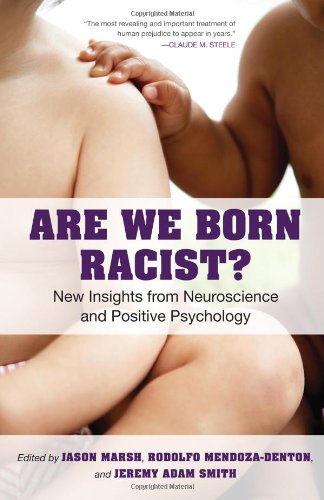
We can engage in all kinds of efforts to unlearn, reprogram, override and free our adult minds from the bias we've absorbed, but surely one of the most fruitful and effective applications of the new data about how prejudice is formed is to figure out how to prevent it from forming in our children's minds in the first place.
Briscoe-Smith's advice: Talk about race. She cites studies with babies and toddlers demonstrating that when presented with faces of people of a different race, they gaze longer at them, which is how young children process new information and "suggests that racial difference is salient to them." Various kinds of studies indicate that children of all races notice race much earlier than we think they do, and long before they have the language to voice their observations.
Here's why it's so important to talk about race with children:
1. Children do notice race, and sort people based on it, but without the judgment we adults ascribe to those divisions.
2. If we are silent, awkward or anxious about the issue of race, children begin to absorb our tension, the message that it's something to be avoided.
3. When we fail to give our children language for understanding the differences their brains are already processing, we limit their opportunities to build skills for connecting across race.

And the cycle repeats itself.
For those of us who were never given language to address race, and in fact taught that it was impolite, dangerous or wrong to address it, beginning those conversations with our children can be daunting. Briscoe-Smith suggests practicing with other adults to increase comfort with the subject.
It's worth the effort. First of all, it's good for us as adults. Briscoe-Smith's own research suggests that "children of parents who talked more about race were better able to identify racism when they saw it, and were also more likely to have positive views about ethnic minorities."
Best of all, talking about race can make a big impact in children's attitudes. "A study by Aboud and Anna Beth Doyle took 9-to-11-year-old children who held prejudiced attitudes toward ethnic minorities and placed them with other 9 to 11 year olds who held less biased beliefs. They asked the kids to talk for two minutes about some of the race-based beliefs they had endorsed earlier in the study. The results were remarkable: After these conversations, the high-prejudice kids demonstrated lower prejudice and more tolerance. Given this impact of a two-minute conversation with a peer, imagine what a childhood of conversations with parents could achieve."
Here's more on the topic:
"Talking About Race with Kids" on "Wild Thoughts from Uganda"
"See Baby Discriminate" from a 2009 Newsweek
Next posts, how to talk about race with children, and five picture books that might begin the discussion.




